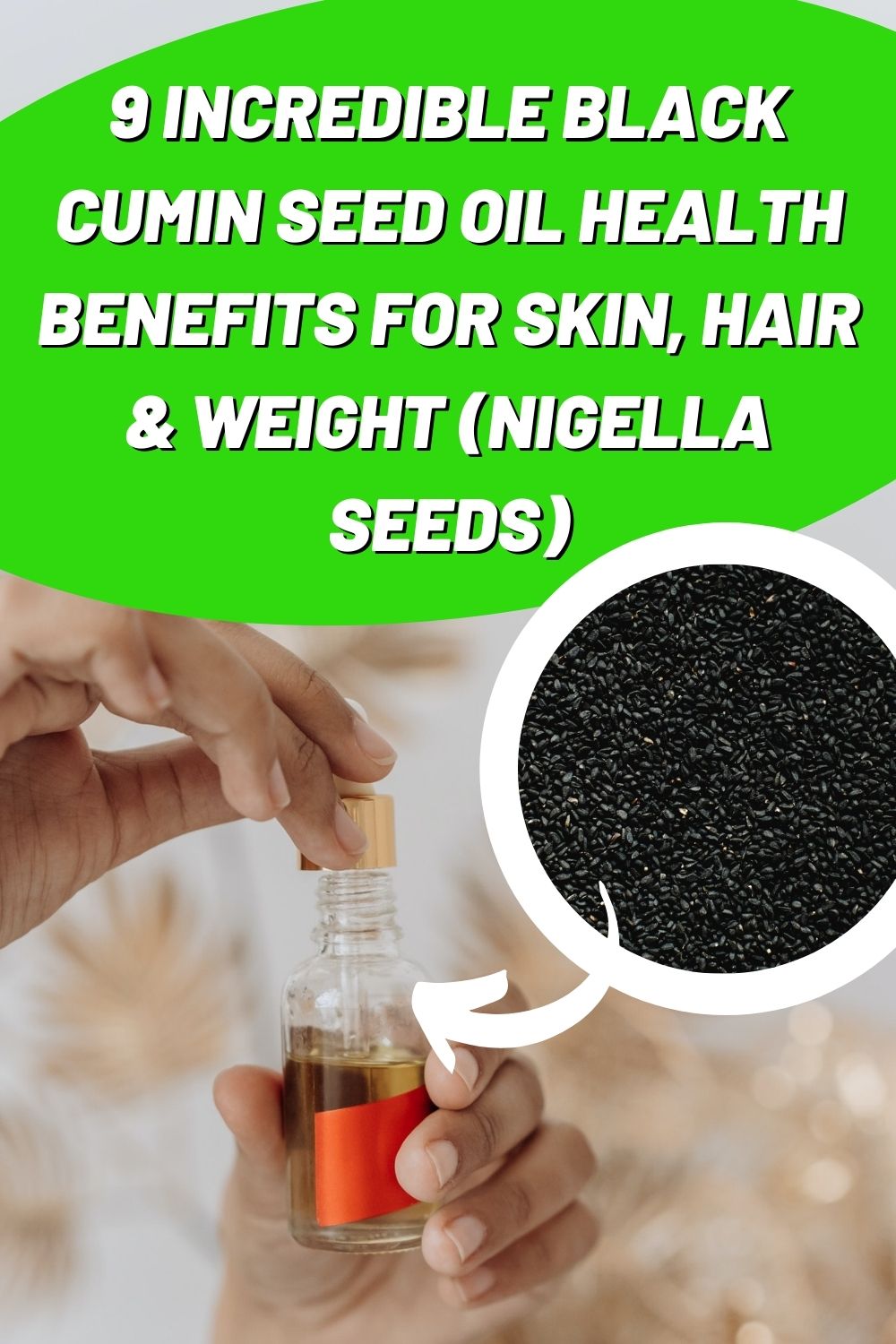Black cumin seed oil is far from a new invention, but it has only recently taken off as a popular natural home remedy. Across the world, people use this oil to treat a variety of health conditions and boost overall wellness.
What exactly is it that makes black seed oil so special? Is it worth adding to your store cupboards? In this guide, we’ll discuss the benefits of black seed oil, and how to find the best oil for you.
What is Black Cumin Seed Oil?
Black seed oil, otherwise known as nigella sativa oil or kalonji oil, is an oil derived from the seeds of the nigella plant, found in southern and western regions in Asia.
For centuries, this oil has been widely used globally, from Africa and Eastern Europe to Asia and the Middle East.
Black cumin seeds and their oil have been used for so long that they were even found in King Tut's tomb. They were also mentioned in the Old Testament, which praised them for being able to cure everything apart from death. If that doesn’t make you want to try the oil for yourself, nothing will!
You’re probably wondering what exactly makes nigella sativa oil so important. This mainly comes down to its nutrients and healthful compounds.
Check the ingredients list of a bottle of black seed oil and you’ll find the likes of phytosterols (compounds that lower cholesterol), essential fatty acids, and omega 3, 6, and 9, to name a few.
While these are all impressive, the biggest health benefits of black seed oil come from its thymoquinone (TQ) content. This antioxidant has a lot going for it: research has found that it can reduce inflammation and allergies, and can even support the immune system.
Benefits of Black Cumin Seed Oil
There isn’t an abundance of research into black seed oil, but several studies have very promising findings. The biggest benefits of nigella seed oil are as follows:
1. Promotes Skin and Hair Health

Did you know that Cleopatra herself supposedly used black seed oil to achieve glowing, radiant skin? Whether that story is true or not, there’s certainly plenty of reason to follow in Cleopatra’s footsteps and seek out the skin and hair benefits of black seed oil yourself.
According to one study, using a lotion that contains black seed oil is beneficial for acne sufferers, and can significantly reduce breakouts with regular use. This is thanks to black seed oil’s potent antimicrobial and anti-inflammatory effects. Black seed oil can even speed up wound healing, which can help to reduce scarring and blemishes.
Additionally, adding black seed oil to your shampoo, or diluting it with coconut or almond oil, can equip you with an effective at-home remedy for itchy and flaky scalp. Just apply the diluted oil to your head and leave for 10 minutes before washing and conditioning as normal.
2. Supports Weight Maintenance

If you’re sceptical about supposed “weight loss” foods, you’re not the only one. Many sellers use clever marketing tactics to sell their products, and one of the easiest ways to sway an audience is to advertise an item as a miracle weight loss tonic.
While adding it to your daily diet won’t help you to lose weight, research suggests that the effects of black seed oil could help with weight maintenance or reduce obesity risk.
One study of women taking either black seed oil or a placebo found that those who had taken the seed oil had lost the most weight and reduced their waist circumference the most significantly. All the women were following the same calorie-restricted diet throughout the 8-week duration of the trial.
Of course, the majority of the oil’s weight loss benefits are indirect. For instance, the thymoquinone in the oil has anti-inflammatory effects, and inflammation is closely linked to obesity. By reducing your inflammation levels, black seed oil may put you at a reduced obesity risk. Like the women in the study, you will need to accompany your seed oil consumption with healthy changes to your diet and lifestyle to see any lasting results.
3. Boosts Digestive Health
There are many benefits of black cumin seeds that we’re only now discovering, but their digestive health problems have been known for centuries. Traditionally, black cumin seeds were used to support the digestive system, and tinctures were used as cures for everything from bloating and diarrhea to indigestion and loss of appetite.
Our ancestors were right to use these seeds in this way. A recent study has found that a solution of black cumin seeds can prevent the formation of gastric ulcers. Again, this likely comes down to the seeds’ thymoquinone content, which is gastroprotective and can support the health of the gut lining.
4. Soothes Aches and Pains

Whether you’re recovering from a tough workout, you’re battling flu symptoms, or you’re just getting old, achy joints can stop you from going about your daily life.
Nobody likes to deal with aches, pains and stiffness, and a simple remedy like black seed oil may be all you need to reduce your discomfort. One study of women with aching joints found that a twice-daily dose of 500-mg black seed oil capsules was enough to decrease morning stiffness and swelling. Additionally, a study found that women who took black seed oil had fewer inflammatory markers in their blood.

5. Supports The Endocannabinoid System
Black seed oil contains phytocannabinoids, which have been proven to support the body’s endocannabinoid system, otherwise known as the “master regulatory system”.
Phytocannabinoids are a well-known type of plant compound that are favored for a broad range of health benefits. They can be found in a variety of oils, including black seed oil, hops oil, rosemary oil, hemp oil, and more.
One particular phytocannabinoid in black seed oil, called beta-caryophyllene (BCP), binds to the CB2 cannabinoid receptor. This receptor is found all over the body - from the gut and the skin to the liver and the immune system, the nervous system and the bones. When BCP binds to CB2, it can help support these systems and boost overall health.
6. Reduces Allergy Symptoms

If you’re one of the millions of people across the world who suffer from seasonal allergies, a natural remedy like black seed oil may be the better alternative to popping pills.
One study of patients with hay fever found that black seed oil may help nasal congestion, runny nose, sneezing, and itchiness - all within 2 weeks of treatment. Once more, the thymoquinone found in black seed oil is to thank, as it works as a natural antihistamine.
7. Reduces Blood Sugar Levels

Type 2 diabetes can be difficult to manage, and following the advice from your healthcare provider is crucial if you want to reduce your symptoms, manage your blood sugar, or even reverse the disease.
According to a recent review, use of black seed oil may offer some benefits to diabetics. Nigella sativa has been found in research to improve cholesterol and blood sugar levels in people with type 2 diabetes - however, clinical trials are needed to clarify these effects.
8. Boosts Respiratory Health
Respiratory problems like asthma are surprisingly common, with 8 million people suffering from the condition in the UK alone.
Research suggests that black seed oil may be able to reduce asthma symptoms and improve overall respiratory health. One recent study of people with asthma found that taking black seed oil capsules can significantly improve asthma control compared to a placebo.
9. Additional Uses
As mentioned earlier in this guide, scientists and medical professionals are still a long way off understanding the full range of benefits offered by black seed oil.
Though research is limited, emerging studies have found that those who use black seed oil may benefit from reduced headaches and infections, and lower blood pressure.
The oil’s anti-inflammatory properties also suggest that it may be helpful in reducing the risk of cancer, cognitive decline, and heart problems.
Finally, you can use black seed oil to treat a skin problem called psoriasis, and other dry skin conditions. As well as reducing itchiness and flakiness of the scalp, it may promote hair growth.
Finding A High Quality Black Cumin Seed Oil
Black seed oil is now widely available, giving us more choice than we could possibly need. It’s easy to become overwhelmed with options, especially as black seed oil is available in a number of different forms.

The most popular black seed oils are sold as liquids or capsules. You can combine nigella sativa oil with shampoos, lotions, and carrier oils, for topical application to your scalp or skin. As a precaution, you should do a patch test before applying the oil to make sure you’re not allergic.
When choosing a black seed oil, there are a few things worth looking out for:
- Choose an organic oil where possible, to ensure you’re using a product that’s free from pesticides.
- It’s worth spending more on a bottle that blocks light, which will prevent the oil from going rancid and increase its lifespan.
- Cold-pressed black seed oil is the highest quality. Other extraction methods often require heat, which may end up damaging the oil’s beneficial compounds.
- Look for an oil that contains 100% black seed oil - no additional ingredients or preservatives.
When it comes to the recommended dose of black seed oil, you should follow the instructions on the bottle. Usually, the safe amount is around 1 and 3 teaspoons per day. It’s wise to start with half a teaspoon if you’re using the oil for the first time, which you can then work up day by day.
If you want to consume nigella sativa oil, you can add it to your hot and cold meals. Either stir into dishes as you’re cooking or use it to top your prepared dishes. Just make sure you don’t add it to dishes while cooking on a high heat, as this heat will cause the oil to lose some of its beneficial properties.
The oil's slightly bitter, peppery flavor might not be for you, and in that case, you have the option to take it in capsule form.
Black cumin seed oil side effects
It’s worth being aware of the side effects of black seed oil before you start using it. While side effects are rare, you should know that you may experience blood thinning from black seed oil.
It goes without saying that you shouldn’t take more than the recommended amount of black seed oil, as this may damage your kidneys or liver. Applying the oil topically may cause a skin reaction, such as hives or a rash. That’s why it’s wise to carry out a patch test beforehand, and to always dilute the oil with a carrier oil to reduce its potency.
If you’re pregnant, are currently taking medication, or have an underlying health condition, don’t take black seed oil without speaking to your doctor first.
Conclusion
In preliminary studies, black seed oil has proven beneficial for treating a variety of health conditions, from high blood pressure to rheumatoid arthritis, high cholesterol to hair and skin conditions. Consuming a couple of tablespoons of black seed oil per day may boost your overall wellness.
Just make sure to keep it realistic - nigella sativa oil isn’t a miracle cure, and shouldn’t be considered instead of medication prescribed by your doctor. We’re still waiting for larger clinical trials to be carried out before we can say exactly how beneficial black seed oil may be for treating the issues mentioned in this guide.
You can buy black seed oil in various locations, including supermarkets, health food stores, and online. You may find the oil alone or combined with other beneficial oils, such as hemp oil. Remember, if you have any questions about taking black seed oil as a home remedy, or you don't know whether it's right for you, your healthcare provider is the best person to turn to.

